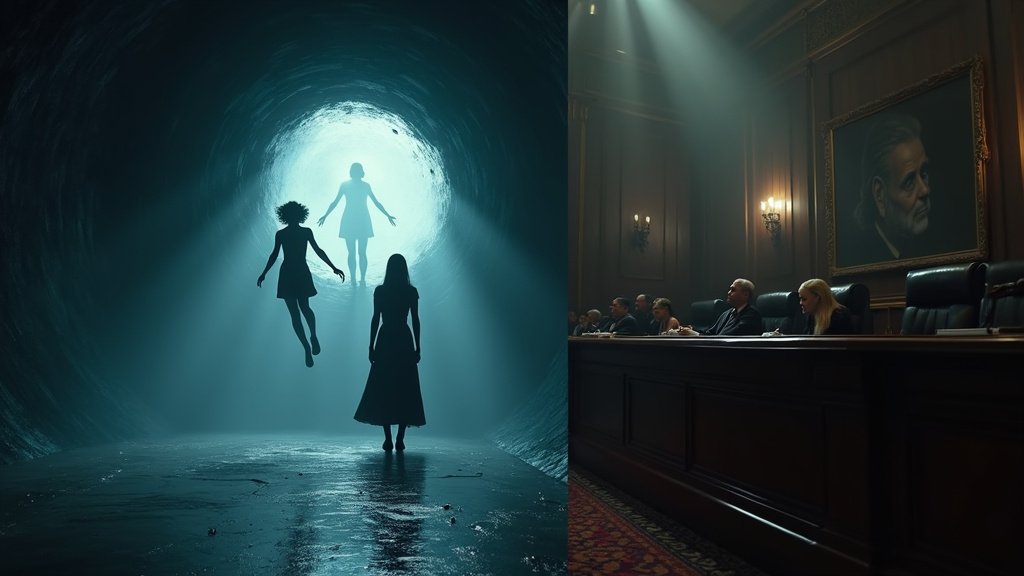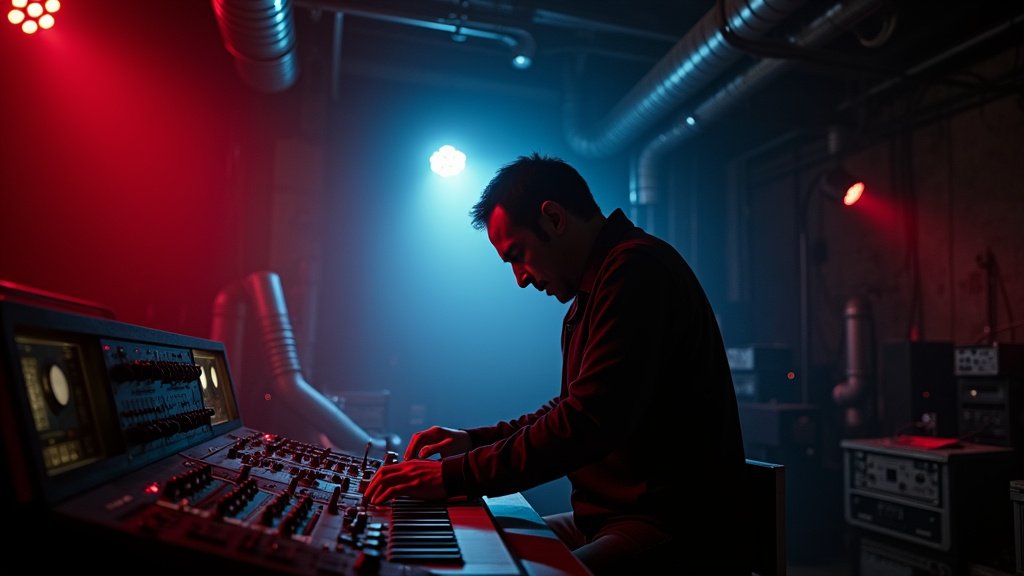When it comes to horror movies, the genre has become something of a buffet. You’ve got your all-you-can-eat slasher flicks, the bottomless pit of jump-scare extravaganzas, and, of course, the guilty pleasure of supernatural spookiness. But every once in a while, a film comes along that refuses to fit neatly into any of these categories—a film that doesn’t rely on buckets of blood, CGI specters, or a teenage cast whose idea of conflict resolution is running up the stairs when they should be sprinting out the front door. Enter “Speak No Evil,” a Danish-Dutch psychological horror that’s as polite as it is harrowing.
Yes, you read that right. Polite. “Speak No Evil” is not the kind of film that’s going to have you jumping out of your seat. Instead, it will sink deep under your skin, burrowing into your psyche like an unwelcome house guest who overstays their welcome. It’s a movie that feels like an exercise in social anxiety, where the real terror lies not in what you see but in what you dread might happen if you simply say “no.”
A Premise That Grows on You—Like a Rash
The film kicks off with a meet-cute at a holiday resort—though “cute” might be stretching it. Two families, one Danish and the other Dutch, strike up a casual friendship. The Danes, Bjørn (Morten Burian) and Louise (Sidsel Siem Koch), are the kind of couple that looks like they just stepped out of a Scandinavian home goods catalog. They’re composed, polite, and, as you’ll find out, utterly incapable of saying what they really think. Their daughter, Agnes, is an adorable little cherub who wouldn’t be out of place on the cover of “Parents” magazine.
Their Dutch counterparts, Patrick (Fedja van Huêt) and Karin (Karina Smulders), along with their son Abel (Marius Damslev), are a bit more… well, let’s just say “eccentric.” Patrick is the kind of guy who thinks it’s perfectly normal to drive for hours in silence, while Karin seems to have mastered the art of passive-aggressive niceties. Abel, by the way, is curiously mute—a detail that the film teases out with all the subtlety of a cat batting at a half-dead mouse.
After a weekend of shared meals and forced smiles, Patrick and Karin extend an invitation for the Danish family to visit them at their remote home in the Dutch countryside. And because this is a horror movie—albeit one dressed in the sheep’s clothing of social satire—Bjørn and Louise agree, despite every instinct screaming that this might not be the best idea.
The Slow Burn of Social Anxiety
From the moment the Danes arrive at the Dutch family’s isolated abode, the atmosphere shifts from awkward pleasantries to a creeping sense of dread. Director Christian Tafdrup knows exactly how to turn the screws, and he does so with the precision of a master carpenter assembling an IKEA cabinet without the instructions. The discomfort is omnipresent, simmering just below the surface as small, seemingly insignificant moments accumulate like pebbles in a shoe.
The genius of “Speak No Evil” lies in its pacing. The film doesn’t rush to reveal its hand; instead, it lets the tension build incrementally, scene by excruciating scene. At first, it’s little things—Patrick’s bizarre insistence that Bjørn eats a dish he clearly doesn’t like, Karin’s unsettling questions about Louise’s parenting choices, Abel’s increasingly eerie silence. These moments are small, but they’re loaded with the kind of tension that can only come from being trapped in a social situation where you’re too polite to simply walk away.
As the weekend progresses, these minor discomforts begin to snowball into a full-blown nightmare. Bjørn and Louise find themselves caught in a web of social expectations, unable to extricate themselves from the increasingly disturbing behavior of their hosts. The movie forces you to confront the horror of what can happen when you’re too afraid of offending someone to protect yourself—a theme that feels painfully relevant in today’s world of constant social interaction and the pressure to be “nice” at all costs.
Performance Anxiety: The Actors Who Make You Squirm
The success of “Speak No Evil” hinges on the performances of its cast, and they deliver in spades. Morten Burian, as Bjørn, perfectly captures the frustration and helplessness of a man who knows something is wrong but can’t quite articulate it. His descent from a mild-mannered family man into a man on the edge of collapse is nothing short of masterful. Sidsel Siem Koch, as Louise, plays the perfect counterpoint—a woman whose politeness is so deeply ingrained that even when she’s terrified, she can’t bring herself to speak out.
But it’s Fedja van Huêt and Karina Smulders who steal the show as the unnerving Dutch couple. Van Huêt’s Patrick is a masterclass in understated menace. He’s the kind of guy who can make you uncomfortable just by smiling at you—a smile that never quite reaches his eyes. Smulders’ Karin, on the other hand, is the epitome of the passive-aggressive host, her polite exterior barely concealing the malice lurking underneath.
Marius Damslev, as the mute Abel, deserves special mention. It’s not easy for a child actor to convey so much with so little, but Damslev does it with aplomb. His silence is one of the film’s most unsettling elements, a constant reminder that something is very, very wrong.
A Climax That Speaks Volumes
If the first two acts of “Speak No Evil” are a slow burn, the final act is a full-blown conflagration. Without giving too much away, the film’s climax is a gut-wrenching exploration of how far people will go to avoid conflict—and the horrific consequences of such inaction. Tafdrup doesn’t pull any punches here; the violence, when it comes, is brutal, raw, and shocking precisely because it feels so inevitable.
The film’s ending is not for the faint of heart. It’s the kind of finale that will leave you sitting in stunned silence, questioning not just the characters’ actions but your own responses to uncomfortable situations. “Speak No Evil” isn’t just a horror movie; it’s a psychological experiment, one that exposes the dark side of human nature in a way that’s both chilling and thought-provoking.
The Art of Horror without the Horror
What sets “Speak No Evil” apart from other films in the genre is its refusal to rely on traditional horror tropes. There are no jump scares, no supernatural elements, and no over-the-top gore. Instead, the film builds its terror from the mundane, turning everyday social interactions into a source of existential dread. It’s a movie that finds horror not in what is seen, but in what is felt—in the unsaid, the unacknowledged, and the ignored.
The cinematography, courtesy of Erik Molberg Hansen, plays a significant role in creating this atmosphere. The film’s color palette is muted, almost sterile, reflecting the coldness of the characters’ interactions. The camera lingers on faces, capturing every twitch, every flicker of discomfort, making the viewer feel like an unwilling participant in the unfolding nightmare.
The score by Sune “Køter” Kølster is equally effective, using dissonant strings and eerie silences to heighten the tension. It’s the kind of music that creeps up on you, subtly worming its way into your brain until you’re as on edge as the characters on screen.
Final Verdict: A Nightmare of Politeness
“Speak No Evil” is not your typical horror film, and that’s precisely what makes it so effective. It’s a movie that takes the ordinary and turns it into something profoundly disturbing. By focusing on the discomforts of social interaction and the dangers of excessive politeness, it creates a sense of dread that lingers long after the credits roll.
This is a film for those who appreciate slow-burn psychological horror, where the real terror comes from within rather than from an external threat. It’s a movie that makes you squirm, not because of what it shows, but because of what it implies—because it forces you to confront the terrifying possibility that, sometimes, the scariest monsters are the ones we let into our lives out of politeness.
So, should you watch “Speak No Evil”? Absolutely—but be prepared to leave the theater feeling a little more wary of accepting dinner invitations from strangers. After all, you never know where a simple “yes” might lead.




